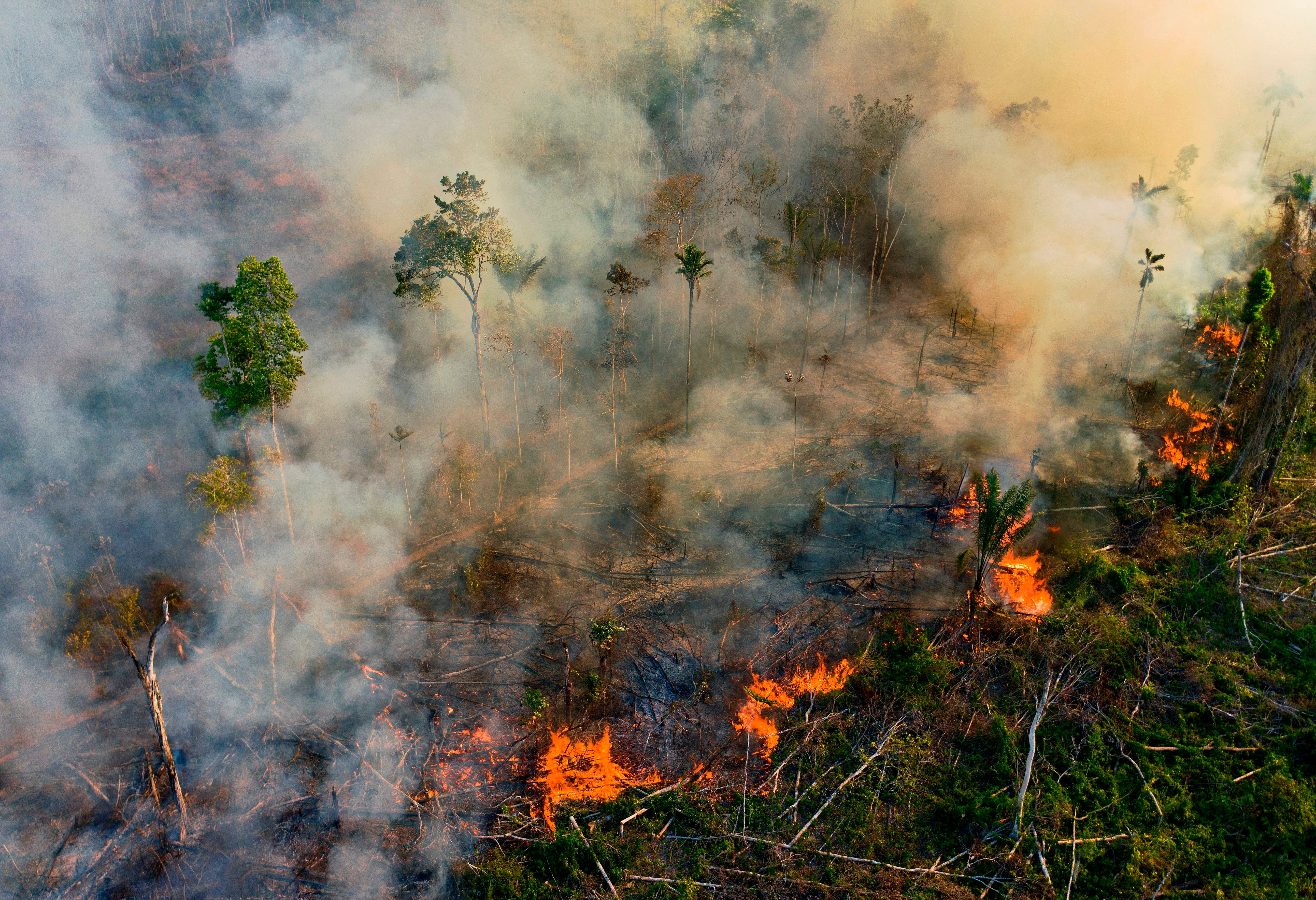Tesco urged to drop meat suppliers over Amazon deforestation fears
Exclusive: call comes after The Independent reported on how the global meat industry is accused of using ‘tobacco company tactics’ to downplay its role in driving the climate crisis
Your support helps us to tell the story
From reproductive rights to climate change to Big Tech, The Independent is on the ground when the story is developing. Whether it's investigating the financials of Elon Musk's pro-Trump PAC or producing our latest documentary, 'The A Word', which shines a light on the American women fighting for reproductive rights, we know how important it is to parse out the facts from the messaging.
At such a critical moment in US history, we need reporters on the ground. Your donation allows us to keep sending journalists to speak to both sides of the story.
The Independent is trusted by Americans across the entire political spectrum. And unlike many other quality news outlets, we choose not to lock Americans out of our reporting and analysis with paywalls. We believe quality journalism should be available to everyone, paid for by those who can afford it.
Your support makes all the difference.Tesco is facing fresh calls to cut ties with its meat suppliers over their alleged links to Amazon deforestation.
In an open letter, Greenpeace urged the UK’s largest supermarket to distance itself from the Brazilian meat giant JBS over its approach to tackling Amazon deforestation.
The supermarket does not buy directly from JBS, but does purchase meat from two of its UK subsidiary companies, Moy Park and Pilgrim’s Pride.
Greenpeace accused JBS of “actively supporting producers that are deforesting and using fire to clear the Amazon” in the letter to Tesco chief executive Ken Murphy.
The call comes after The Independent reported that JBS and other large meat companies have been accused of using “tobacco company tactics” to downplay their role in driving the climate crisis.
Meat and dairy production accounts for around 14.5 per cent of global greenhouse gas emissions, according to the UN’s Food and Agricultural Organization (FAO).
But an investigation by the environmental outlet Desmog, shared with The Independent, said that top meat companies are copying tricks also used by fossil fuel firms to ultimately “confuse and delay regulation” of their planet-harming activities.
Such tactics include routinely downplaying their own greenhouse gas emissions, attacking established science on how livestock farming is driving the climate crisis and casting doubt over the benefits of plant-based alternatives to meat, according to the investigation.
Greenpeace has previously targeted Tesco over its links to JBS and last summer called for the supermarket to halve the amount of meat it sells by 2025 to help tackle the climate and nature crises.
“We urge you again as the UK’s largest supermarket and biggest seller of industrially produced meat to lead the way,” Greenpeace UK’s chief executive John Sauven said in the letter.
“Stop funding Amazon destruction by dropping JBS and its subsidiaries from your supply chain now.”
Greenpeace’s call comes after a study published in Nature earlier this month found that parts of the Amazon have begun emitting more carbon than they are able to absorb as a result of deforestation and the climate crisis.
Researchers and environmental campaigners also warned this month that the rainforest could be heading towards unprecedented damage under the leadership of Jair Bolsanaro.

The Brazilian president is attempting to push through a suite of land regulation bills that could put a further 19.6 million hectares of public land in the Amazon at risk and threaten the rights of indigenous groups, according to the NGO Imazon.
Tesco was one of a number of UK companies to recently sign an open letter warning that it would “reconsider” its support of Brazilian agricultural goods if the new laws are passed.
But Greenpeace said Tesco’s “signature means very little” while it keeps ties with “companies that stand to directly profit from this dangerous legislation”.
A spokesperson for Tesco said: “Clearing forest land for crops must stop. We are committed to fully playing our part to prevent further deforestation.
“We met our 2020 industry-wide target of certified ‘zero net deforestation’ for our own direct soy sourcing a year early. Recognising there is more to do, we have set an additional 2025 target to only source our UK soy from verified zero deforestation regions. Our suppliers meet our zero deforestation standards, and we are working with them to meet our 2025 goal.”
The spokesperson added that Tesco opposed “any weakening of forest protection laws and has called on the Brazilian Congress to uphold existing protections”.
A spokesperson for JBS disputed Greenpeace’s allegations and claimed that its “cattle purchases were 100 per cent deforestation free”.
“JBS does not condone deforestation,” the spokesperson said. “Earlier this year, JBS also became the first major global meat and poultry company to commit to net zero emissions by 2040.”
The JBS spokesperson added that the company has “committed to reduce direct emissions from our operations by 30 per cent by 2030 and we will invest more than $1 billion in emission reduction projects over the next decade alone”.
A report by Greenpeace released in March found that JBS slaughtered cattle purchased from ranchers linked to the 2020 fires in the Brazillian Pantanal, the world’s largest tropical wetland.
The Independent also contacted representatives of Moy Park and Pilgrim’s Pride for comment.

Join our commenting forum
Join thought-provoking conversations, follow other Independent readers and see their replies
Comments